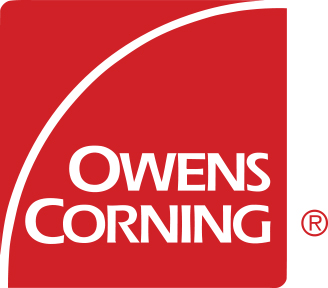Owens Corning: Increasing Our Social Handprint Via Community Engagement

Originally published in Owens Corning's 2020 Sustainability Report
Community Engagement 2020 Goals:
- Achieve 82% site participation in community service projects with 100% of our facilities engaged by 2022 through community projects.
- Increase volunteer hours annually.
We take an active role in the communities where we operate, and our employees are enthusiastic about company-sponsored opportunities to make a difference.
In the past ten years, we have:
- Contributed over $5 million to nonprofit organizations in 2020 through Owens Corning and the Owens Corning Foundation.
- Committed more than $2.3 million toward racial equity in 2020, including a partnership with Local Initiatives Social Corporation.
- Leveraged our business expertise, financial resources, and people to provide safe and efficient housing, promote health and wellness, and increase educational opportunities around the world.
- Provided new roofs to veterans in need through the Roof Deployment Project.
- Built or renovated over 150 homes since 2016 through Habitat for Humanity International.
Don Rettig
Director, Community Relations
The expectations and opportunities around corporate citizenship that companies encountered in 2020 were very different from those of 2010. Ten years ago, investor interest was infrequent, today a strong corporate citizenship program is table stakes. Employees and potential employees prefer and seek out employers that make a positive impact in the communities where their people live and work. And while engaging regional facilities in community volunteerism presented a challenge in 2010, in 2021 the challenge is meeting the demand.
Where 2010 to 2019 brought a steadily increasing emphasis on corporate citizenship, the year 2020 generated more change than the previous nine years combined. Corporate approach to disaster relief, previously limited geographically to a community, region or perhaps a country, was forever altered by a global COVID-19 pandemic. That same pandemic forced new thinking around employee engagement, ushering in a new era of virtual volunteerism. Over the last 10 years, our employees have made a tremendous difference in their communities, with volunteerism increasing dramatically since 2010, and we expect those increases to continue as we enter a post-pandemic world.
Perhaps even more significant were the events of 2020 that shone a bright light on the issue of racial inequity. Perhaps for the first time, it was the corporate world that sprang into action to bring real change within local communities, committing billions and leading the philanthropic response. While the pandemic will bring programmatic changes to disaster response, the new focus on eliminating racial inequity will refocus the corporate citizenship strategies of U.S. companies for many years to come.

